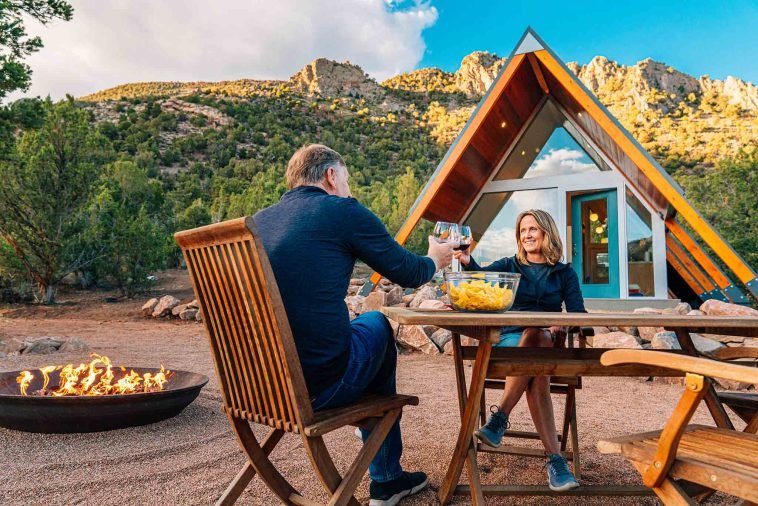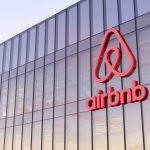Introduction.
Running an Airbnb business has become one of the most flexible and potentially profitable ways to make income, whether as a side gig or a full-time commitment.
As travel habits evolve, more people prefer vacation rentals for their unique experiences and personalized touches.
But before jumping into it, there’s a lot to consider—from picking the right property to understanding local laws and handling guest expectations.
In this guide, I’ll walk you through the essentials of starting and running a successful Airbnb business.
How Do I Run an Airbnb Business?
Step 1: Choose Your Property and Location.
Location is critical. Urban spots or popular tourist areas often bring in the most bookings, but rural escapes and unique spots (like cabins or tiny houses) are also in demand.
Make sure to research average occupancy rates, seasonal trends, and average nightly rates in the area you’re considering.
Key Things to Look For:
- Proximity to Attractions: Properties close to attractions, downtown areas, or transportation hubs generally attract more guests.
- Amenities: Think about what travelers need—Wi-Fi, parking, kitchens, and cozy furnishings. The more amenities, the higher you can set your nightly rate.
- Legal Considerations: Some cities have strict regulations for short-term rentals. Make sure to review local rules and HOA restrictions to avoid fines or legal issues.
Step 2: Prepare Your Property.
Once you’ve picked your property, it’s time to prepare it. A well-prepared, comfortable space not only attracts more guests but also boosts your reviews and future bookings.
Key Preparations:
- Cleanliness: Hiring a professional cleaning service can help ensure the space is spotless for each guest.
- Stock Essentials: Provide basic toiletries, fresh towels, bed linens, and kitchen essentials like coffee, tea, and cooking supplies.
- Smart Decor: Simple, stylish, and comfortable interiors tend to attract guests. Adding a few unique touches—local art or a cozy reading nook—can help your listing stand out.
- Safety Measures: Include smoke detectors, first aid kits, and clear emergency instructions.
Step 3: Create an Eye-Catching Listing.
Your Airbnb listing acts as the first impression, so make it count. High-quality photos and a well-written description can make all the difference.
Tips for Creating a Great Listing:
- Professional Photos: Listings with high-quality photos tend to book 24% more often, according to Airbnb. Consider hiring a photographer, or at least use a high-quality camera and natural lighting.
- Detailed Descriptions: Describe each room, the amenities, and what makes your property unique. Avoid exaggeration and focus on the aspects that genuinely set your place apart.
- Accurate Pricing: Use Airbnb’s pricing tool to get a sense of local rates and adjust accordingly. You might consider slightly lower rates to build up your reviews initially.
Step 4: Manage Your Airbnb Business.
Once the bookings start, managing the business smoothly is key. Consistent quality will keep your occupancy rates high and attract good reviews.
Day-to-Day Management Tips:
- Communication with Guests: Set clear communication standards with your guests before, during, and after their stay.
- Automate Where Possible: Use smart locks or keyless entry, automated messages, and a cleaning service to save time.
- Stay on Top of Maintenance: Regularly check the property for wear and tear and fix issues quickly to prevent complaints.
- Guest Reviews: Encourage guests to leave reviews. Respond professionally to both positive and negative feedback to build a strong reputation.
Pros and Cons of Running an Airbnb Business
Pros:
- High Income Potential: Airbnb hosting can generate a steady income, especially in tourist-heavy areas.
- Flexibility: You decide when to rent out your space, giving you more control over your schedule.
- Tax Deductions: Hosts can often claim deductions for property expenses, repairs, and depreciation.
Cons:
- Unpredictable Occupancy Rates: Booking frequency can vary, especially during off-seasons.
- Guest Damage: There’s always the risk of guests causing damage. Airbnb offers Host Protection Insurance, but handling incidents can be stressful.
- Time-Consuming: Cleaning, maintenance, and guest communication can take more time than expected, especially if you self-manage.
Common Questions
How much does it cost to start an Airbnb business?
Startup costs vary widely. If you’re renting out a property you already own, you might spend $1,000 to $3,000 setting up the essentials. For new properties, you’ll need a down payment, furnishings, and possibly some remodeling, which can add up to tens of thousands.
Do I need to own a property to start an Airbnb?
No. Many hosts use rental arbitrage, where they rent a property long-term, then sublet it on Airbnb (with the landlord’s permission). Another option is co-hosting, where you manage someone else’s property in exchange for a fee.
How can I protect my property from damage?
Airbnb’s Host Protection Insurance provides some coverage, but it’s smart to set a damage deposit and clarify house rules in your listing. Regularly checking in with guests and setting clear expectations can help reduce incidents.
How much can I make on Airbnb?
Income varies based on location, property type, and occupancy rates. According to a 2022 report, the average U.S. host earned around $13,800 annually, but those in top tourist cities can earn much more.
How do I handle negative reviews?
First, stay calm and professional. If the criticism is valid, own up to it and mention how you’ll improve. If it’s unfair, respond factually but diplomatically. Avoid long explanations, and focus on showing future guests that you’re responsive and committed to a good experience.
Conclusion
Starting an Airbnb business can be rewarding and profitable, but it requires careful planning, smart management, and ongoing effort.
rom choosing the right property to maintaining high standards, each step plays a role in creating a successful hosting experience.
Have you thought about what would make your Airbnb stand out from the crowd?





GIPHY App Key not set. Please check settings